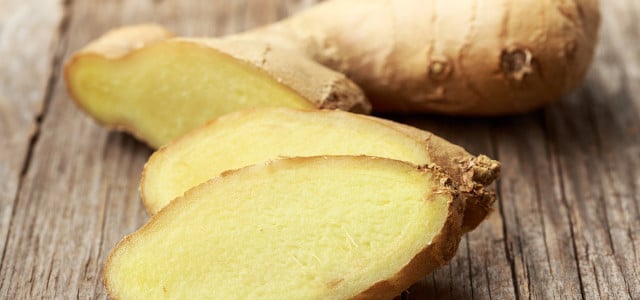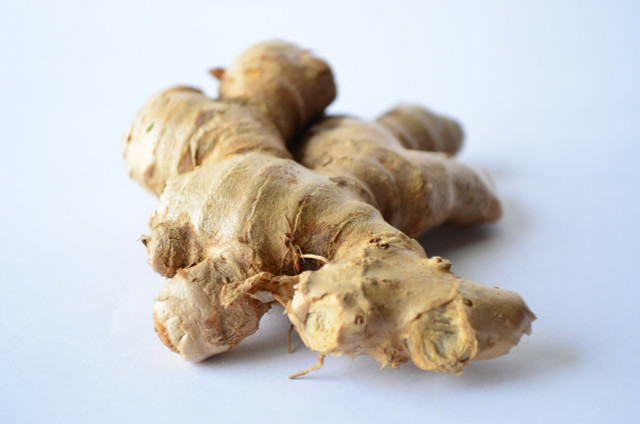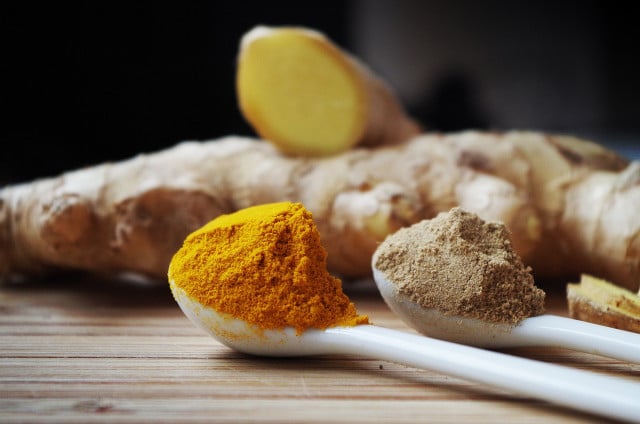
Although it has long been considered a healthy miracle root, ginger also has some side effects. We’ll show you what you should look out for when consuming it.
Ginger is used in many ways in cooking and medicine because of its antibacterial and digestive properties. There is no doubt about it: the healthy ingredients in ginger and the essential oils of the spicy root have numerous benefits for the body.
But ginger can also have side effects. Before consuming it, you should be aware of the negative effects of the root as well as the positive ones. In the following sections, you will find out which side effects eating ginger can have and in which cases you should perhaps avoid it.
1. Gastrointestinal complaints as a side effect of ginger

(Photo: CC0 / Pixabay / PDPics)
According to the University Hospital of Freiburg, ginger has many properties that, among other things, have a positive effect on the intestinal flora and can therefore stimulate digestion. The reason for this is the spicy substances contained in the root and the so-called gingerols.
But at the same time, these gingerols and the essential oils of the ginger root can also irritate your stomach lining and cause side effects such as stomach pain, diarrhea and flatulence. According to an article by NDR, you should be a little more sparing with your consumption of ginger if you have a sensitive stomach or are prone to inflammation of the gastric mucosa. In this case, it is recommended not to exceed a daily dose of one to two grams – or two thin slices of fresh ginger.
The spicy substances in ginger are also said to have the side effect of causing heartburn. Why this is the case has not yet been scientifically explained. However, the increased stomach movement caused by ginger could be responsible for stomach acid entering the esophagus.
2. Ginger has an anti-coagulant effect

(Photo: CC0 / Pixabay / wzy197899)
Another side effect of ginger, according to the Techniker health insurance company, is that it can inhibit blood clotting. If you are taking blood-thinning medication, you should avoid large amounts of the tuber and discuss with your doctor whether – and if so, in what dosages – you can consume ginger.
Ginger is also said to increase the bleeding in the case of nosebleeds. There is currently no concrete study on the effect of ginger on nosebleeds. However, if you tend to have frequent nosebleeds, it can’t hurt to consume ginger root less often.
3. Side effects of ginger during pregnancy

(Photo: CC0 / Pixabay / redgular)
During pregnancy, you should avoid large amounts of ginger, ideally as soon as you notice the first signs of pregnancy. According to NetDoktor, eating ginger can cause some unpleasant side effects, especially at this time:
- On the one hand, ginger is said to be able to trigger labor because it softens the cervix and is said to help induce labor. This is why ginger is considered a home remedy for inducing labor – however, the exact effect has not yet been scientifically proven and is anecdotal.
- According to NetDoktor, you can also get headaches or heartburn if you eat too much ginger during pregnancy.
- Some doctors also advise against eating ginger while breastfeeding, as the specific effect on the baby has not yet been sufficiently researched.
4. Irritation in the mouth

(Photo: CC0 / Pixabay / PDPics)
If you are sensitive to spicy food, the spiciness of ginger could also cause unwanted side effects. The tuber does not taste as spicy as chili, for example, but it can still irritate the mucous membranes in your mouth.
It’s best to listen to your body here. Heavy sweating and a burning sensation in the mouth indicate that ginger is too spicy for you.
5. Side effects of ginger for gallstones

(Photo: CC0 / Pixabay / Ajale)
According to a report by Deutschlandfunk, ginger has a choleretic effect. This means that it increases the production of bile. If you have gallstones, this side effect can cause gallbladder pain. However, the exact effect is not clear. It is best to discuss this point individually with your doctor.
Conclusion: You can eat ginger in moderation without worrying. However, if you belong to a risk group, you should avoid highly concentrated ginger drinks such as ginger shots and not exceed a daily dose of two grams.
Read more on Techzle\.com:
- Essential ginger oil: effects and correct use
- Instead of buying: Simply grow ginger – here’s how
- Ginger shot: DIY recipe
Edited by Freya Petersen
** marked with ** or orange underlined Links to sources are sometimes affiliate links: If you buy here, you are actively supporting Techzle\.com, because we then receive a small part of the sales proceeds. More information.